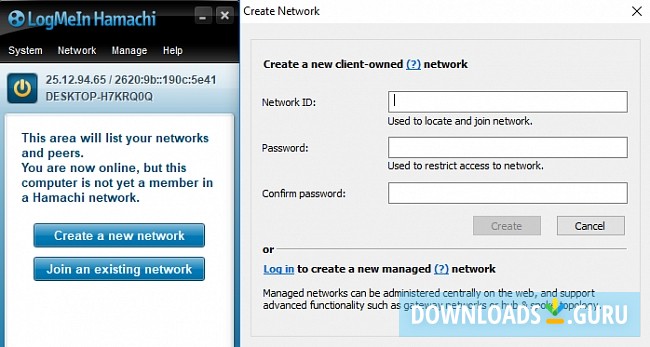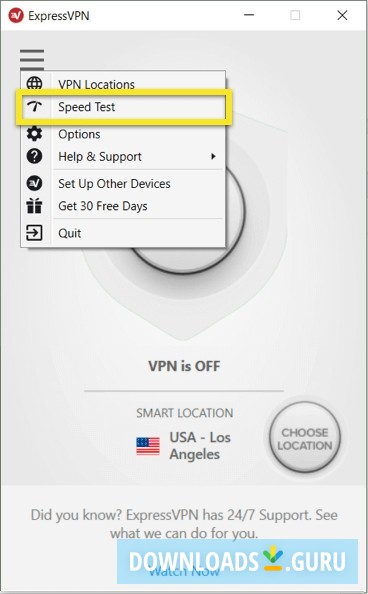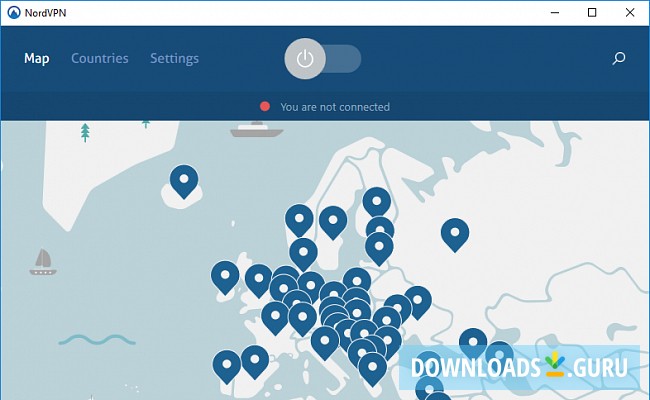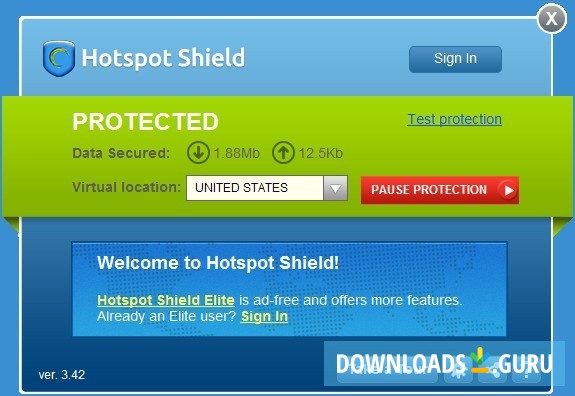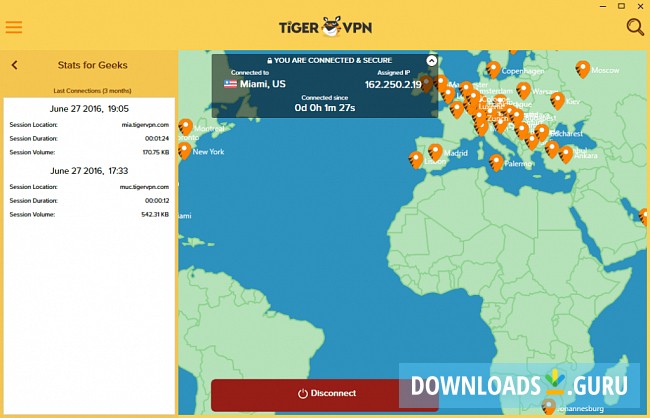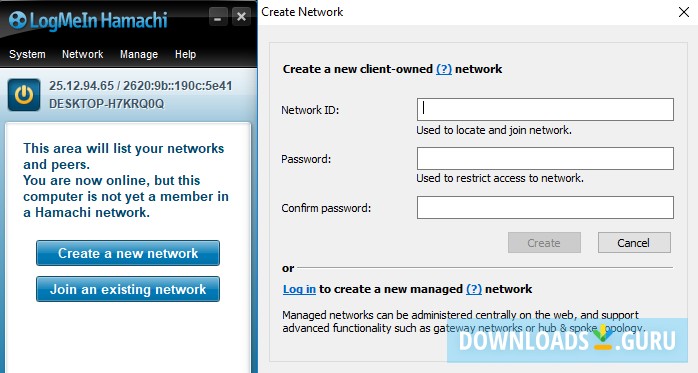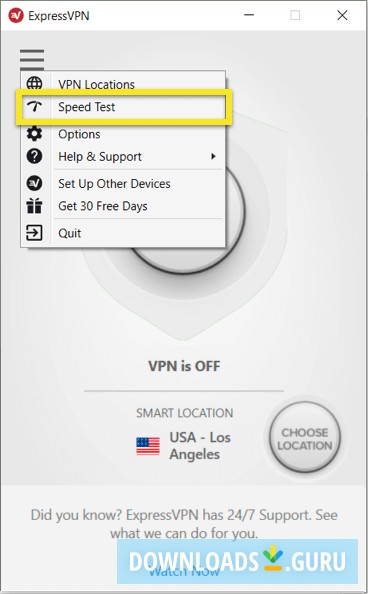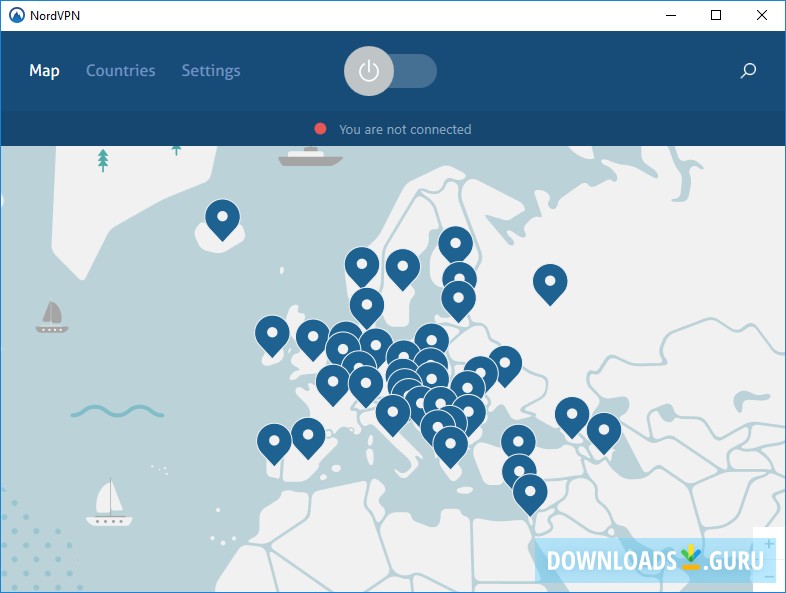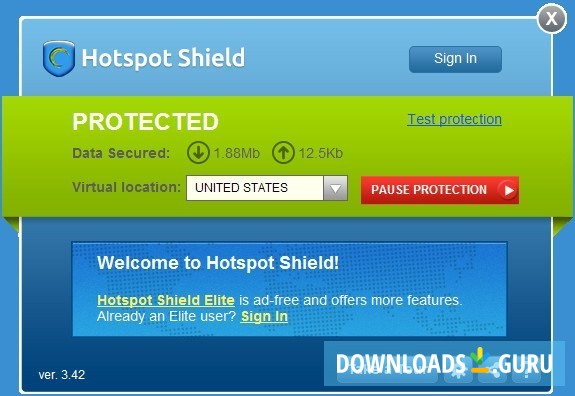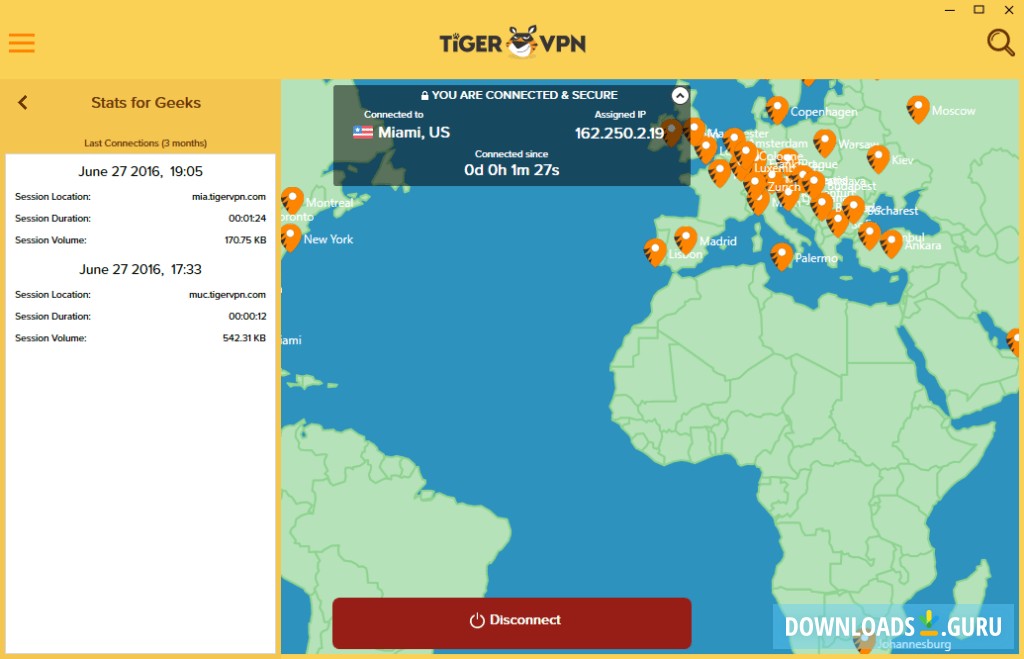VPN (Virtual Private Network) is a secure channel established inside the Web, which allows you to visit websites, watch streams or play games safely without revealing your privacy details, such as your IP address, location or online activity.
After issuing the GDPR act, it became obvious that a crowd of powerful actors is constantly involved into collecting, analyzing, selling and using your personal data, including the local ISPs, popular search engines, major social media, ad networks, governments, and many more. That's why using a VPN client should become an essential part of your daily web-surfing as it's a much more reliable way to protect your privacy than traditional antivirus and firewall solutions.
If you live in a country with a web censorship policy blocking certain websites, a VPN service is a tool that lets you overcome these restrictions. Here we reviewed a few popular VPN providers with a full stack of required functions.
Hamachi is a legendary cloud-hosted VPN system that is quite different from other popular VPN providers. It doesn’t have a global server network providing servers to connect to, but it allows users to create and maintain LAN-like virtual private networks easily (it creates a secure connection over the Web that simulates a local area network). This professional software offers encrypted communication and centralized access control for distributed business teams and gamers. It's free for up to 5 computers in your network, but it can be extended up to 256 computers with multiple networks. It is downloadable for all the major platforms including Windows, Mac, and Linux
- Unattended access: with Hamachi working in the background, you can always access your computer's resources.
- Gateway virtual networking: remote users can securely access your private network from a centralized Hamachi gateway.
- Hub-and-spoke virtual networking: remote users can securely access specific computers without tweaking firewalls & network devices.
- Mesh networking: remote machines can directly connect each other giving users access to all the network resources they need.
- No VPN kill switch, so if your connection drops, your privacy protection fails.
- Looks a bit overwhelming for users who just seek a quick secure browsing solution.
ExpressVPN is an excellent VPN provider, with the Windows client, powered by a set of cool technologies: faster server suggestion, a variety of VPN protocols, kill switch and split-tunneling options. It provides a huge selection of VPN locations and 30,000+ IP addresses for anonymous web-surfing, access to Netflix, Hulu, BBC iPlayer, Amazon Prime Video, and a high-speed capability for torrenting. It comes with 30 days money-back guarantee, and its price starts from $12.95 USD per month with a possibility of bulk discounts when subscribing to a prolonged plan. It's available for Windows, Mac, Android, iOS and Linux.
- 'VPN kill switch' stops all traffic on your device if it gets disconnected from VPN.
- Manage VPN from browser extensions (Chrome, Firefox, Safari).
- 256-bit AES encryption to protect your data and DNS/IPv6 leak protection.
- Split-tunneling: VPN-protect only selected devices or applications.
- Expensive license.
- Only 3 devices are supported simultaneously.
- Limited advanced configuration options.
NordVPN is a Panama-based VPN provider with a decent speed and rich set of functions and protocols supported. It features a double-routing of the traffic called ‘double VPN encryption' that is meant to make your connection even more secure, and also provides an integration with the TOR network. The price varies from $9.00 to $2.75 USD per month according to a selected plan, with a 30-day money-back guarantee. It works with Android, iOS, Windows, Mac, Linux, and some other.
- Connection wizard: a button that connects you to the closest VPN server.
- Double VPN encryption: traffic is additionally routed via two servers and, thus, gets twice encrypted (AES-256) before it goes to the Web.
- Unite the power of VPN with the anonymity of Tor, so you don't need the TOR browser (it has three available Tor servers).
- 'Double encryption' concerns: some experts put it into question, as the AES 256-bit encryption is already a hacker-proof method, while a double-routing itself may negatively affect the traffic speed.
- Security concerns: a lack of the ownership transparency may become a deal breaker for some users.
Hotspot Shield is a VPN provider with all the basic features, and some cool specials, including quite a speedy performance, thanks to its improved protocol, a cloud-based malware and phishing protection that add a bit of extra safety to your daily browsing routine. The weak point is a small number of server locations. Its one-month subscription costs $12.99 USD, but you may get a bulk discount when subscribing for longer; a 45-day money-back policy is included. It works on iOS, Android, Mac, Windows and Chrome OS.
- Cloud-based malware protection: it will alert you if detects a site with viruses, phishing, or spam (3.5M+ unsafe sites).
- 256-bit AES data encryption.
- Use one account on up to 5 devices.
- Great network performance: the Catapult Hydra protocol is said to work 2.4x faster than OpenVPN over long-distance connections.
- A small number of server locations.
- Limited VPN configuration options.
- Privacy concerns: obligatory use of the service's proprietary Catapult Hydra protocol may look suspicious to some users.
TigerVPN is a VPN provider with a touch of funny marketing, saying that 'tigerVPN is like a condom for your gadget', claiming that 'you can bet your ass on' their service. Great! In fact, this Slovakian-based service runs their own network with in-house DNS servers, so TigerVPN can boast a decent speed and control over its infrastructure. You can get a subscription at $6.67-11.99 per month with 7 days money back guarantee. TigerVPN covers all the major platforms: Windows, Mac, Android, and iOS.
- Meshed IPs: a group of anonymous customers works under a sole IP (like riding a bus together).
- Earn so-called Karma Points for being active on social media and use them to improve your subscription.
- 30% bandwidth is reserved to use the resource for the sake of speed.
- In-house network & DNS servers.
- Uncertain privacy policy: it might store your personal information (email and payment information) on a third-party server according to their policy.
As you can see all the presented VPN services are effective in their own way. Check all the pros and cons of each service and make the right choice. Don't forget to share it with us in the comments!






